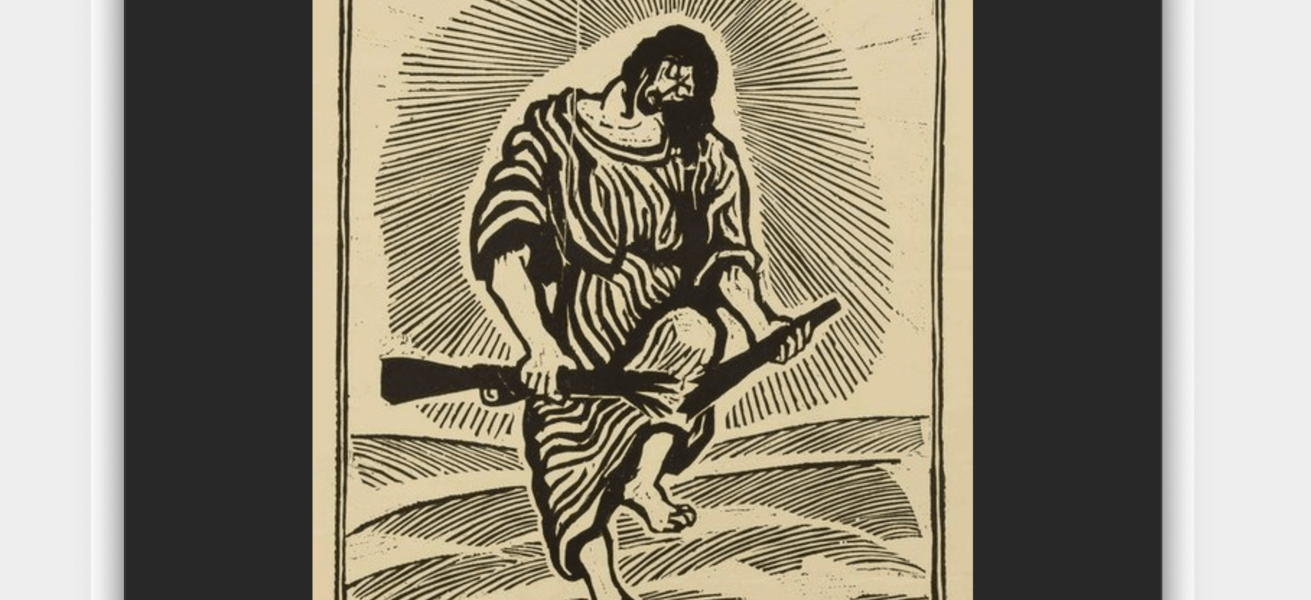From The Martyr's Mirror by Thieleman J. van Braght; translation by Joseph F. Sohm:
OF THE TITLE OF THIS WORK: THE BLOODY THEATRE OF THE ANABAPTISTS, etc.
The first part of the title, consisting of the words, THE BLOODY THEATRE, will, we think, not be subjected to any serious criticism, since no one can dispute that all that is treated here, so far as the martyrs are concerned, is a representation or exhibition of the blood, suffering, and death of those who, for the testimony of Jesus Christ, and for their conscience' sake, shed their blood exchanging their life for a cruel death.
But the second part, consisting of the words, "OF THE ANABAPTISTS," may easily meet with some opposition, because some will not admit that the Anabaptists, or those who maintain such a confession as they do, have existed through every century, from the days of Christ up to the present time; and, what is still more, that they have had their martyrs. But in order to treat the matter systematically and in the best manner, we shall first speak of the name, and then of the thing itself.
Comments:
1. Aside: Martyrdom and the "Baptism of Blood"
Of course not all Christians are martyrs in the strict sense of suffering violent persecution and death for the sake of their witness to the gospel. All Christians are however witnesses (Gk. martus [singular form]). Anabaptist tradition talks of believer's undergoing three baptisms: the baptism of the Spirit, the baptism of water, and the baptism of blood—meaning martyrdom. (See this article at Third Way Café).
(...Click below for full post)
In my understanding, the baptism of blood is today (in contexts less immediately under threat of violent persecution) understood as suffering the harsh consequences of maintaining one's counter-cultural, non-violent, anti-imperialistic witness to the gospel of Jesus. It is part of the disciple's following Jesus, for Jesus suffered the consequences of His preaching the gospel when He was crucified.
In some cultural contexts (16th century Europe) the baptism of blood has played out in suffering violent persecution for refusing the teachings of state-supported churches (Protestant as well as Roman churches) regarding infant baptism and participation in war. In other cultural contexts (20th century United States) the baptism of blood has played out in alternative service as a consequence of refusing to serve in the military when drafted. Of course there have also been times in (fairly recent) US history when Christian pacifists have been imprisoned and executed rather than offered the opportunity for alternative service.
Today, we don't have the draft, but the baptism of blood might be played out through social ostracism. For example, a friend of mine who recently finished her college degree at a state university told me once about giving a presentation in a U.S. History class about conscientious objectors during World War II. Because class discussion had previously shown popular support for anti-war sentiments, in reference to the current administration's War on Terror, she did not expect the strong negative reactions she received from her classmates.
One of the things that attracts me to Anabaptism is its history of taking unpopular stands and suffering the consequences. This recalls to me how the early church's confession of Jesus as Lord (and not Caesar) was filled with meaning because it came with harsh consequences—whether in terms of social privilege or more starkly in terms of violent persecution.
Of course it must be remembered that a stance's being unpopular and counter-cultural and coming with harsh consequences is neither a necessary nor a sufficient condition for that stance's being a real and important part of the Christian witness.
2. Church Perpetuity
Here is the essential claim I am interested in: the church perpetuity claim:
Although it must be admitted that even if it is strictly true that Anabaptists have existed since the time of the early church, it does not follow with necessity that only Anabaptists make up "the true church" (thus excluding Christians who participated in war or who baptized infants)."the Anabaptists, or those who maintain such a confession as they do, have existed through every century, from the days of Christ up to the present time"
Next Time: In the next section vanBraght continues to elaborate on the doctrine of believer's baptism as a distinctive of Anabaptists and a mark of "the true Church".
------
"He Himself is our Peace." (Eph 2)





No comments:
Post a Comment